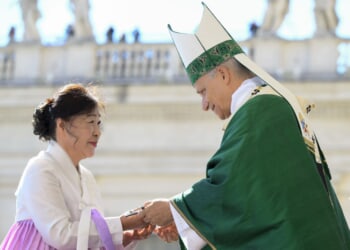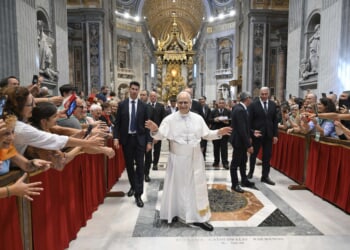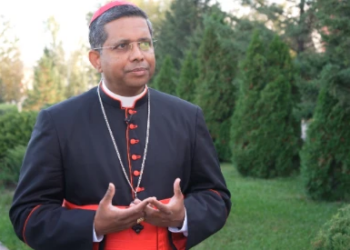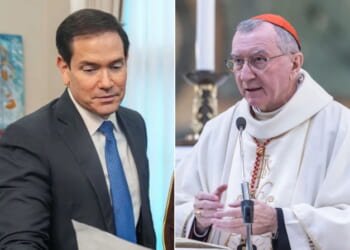President Donald Trump’s war on Venezuela narcoterrorism could serve as a path towards regime change, foreign policy analysts told the Daily Caller.
The Trump administration is ramping up displays of power in the Caribbean, including by striking “narcoterrorist” drug ships leaving Venezuela and moving forces to the Caribbean. Regime change could also be on the table — a response that appears not only disproportionate to the drug trafficking threat in the area, but also at odds with Trump’s usual calls for peace between nations, three foreign policy analysts told the Caller.
Secretary of War Pete Hegseth shared a video Tuesday of U.S. forces striking down another four vessels on international waters that were “operated by Designated Terrorist Organizations (DTO) trafficking narcotics in the Eastern Pacific.” The strikes resulted in 14 deaths.
“The Department has spent over TWO DECADES defending other homelands. Now, we’re defending our own. These narco-terrorists have killed more Americans than Al-Qaeda, and they will be treated the same,” Hegseth said. “We will track them, we will network them, and then, we will hunt and kill them.”
Yesterday, at the direction of President Trump, the Department of War carried out three lethal kinetic strikes on four vessels operated by Designated Terrorist Organizations (DTO) trafficking narcotics in the Eastern Pacific.
The four vessels were known by our intelligence… pic.twitter.com/UhoFlZ3jPG
— Secretary of War Pete Hegseth (@SecWar) October 28, 2025
Trump has shared similar footage and warnings over the past few months on Truth Social.
“BE WARNED — IF YOU ARE TRANSPORTING DRUGS THAT CAN KILL AMERICANS, WE ARE HUNTING YOU!” Trump posted Sept. 15.
There have not been enough assurances from the administration that it is not seeking a regime change operation in Venezuela, Senior Advisor for the Quincy Institute and Editorial Director at Responsible Statecraft, Kelly Vlahos, told the Caller. (RELATED: Trump Admin May Have Eyes On New Regime Change War)
When questioned in September if his administration was discussing the possibility of regime change, Trump answered, “We’re not talking about that,” according to Time Magazine.
She shared hopes that Trump would listen to those advising him that regime changes often end terribly over “the more ideological elements in his administration,” such as Secretary of State Marco Rubio, who she asserted “has wanted to engage in regime change [in Venezuela] his entire career.”
Vlahos pointed to Rubio calling Nicaragua, Venezuela and Cuba “enemies of humanity” while visiting Costa Rica early into the administration.
Trump is surrounded by people who have “demonstrated a longstanding antipathy towards Maduro,” Joseph Addington, an associate editor at The American Conservative who writes on Latin America, told the Caller. He noted there is “a strong contingent in the National Defense community that has been pushing for a stance towards Western hemispheric affairs.”
Rubio addressed the administration’s strikes near Venezuela in September.
“But this time, we’re not just going to hunt for drug dealers with the little fast boats and say, let’s try to arrest them. No, we’re — the president has said he wants to wage war on these groups because they have been waging war on us for 30 years and no one has responded,” Rubio stated, according to PBS.
Although Trump has been clear that he wants to stop drug distribution into America, he has not sufficiently explained why he needs to commit to military action rather than treating this as a law enforcement or border issue by utilizing the Border Patrol and the Coast Guard, Vlahos told the Caller.
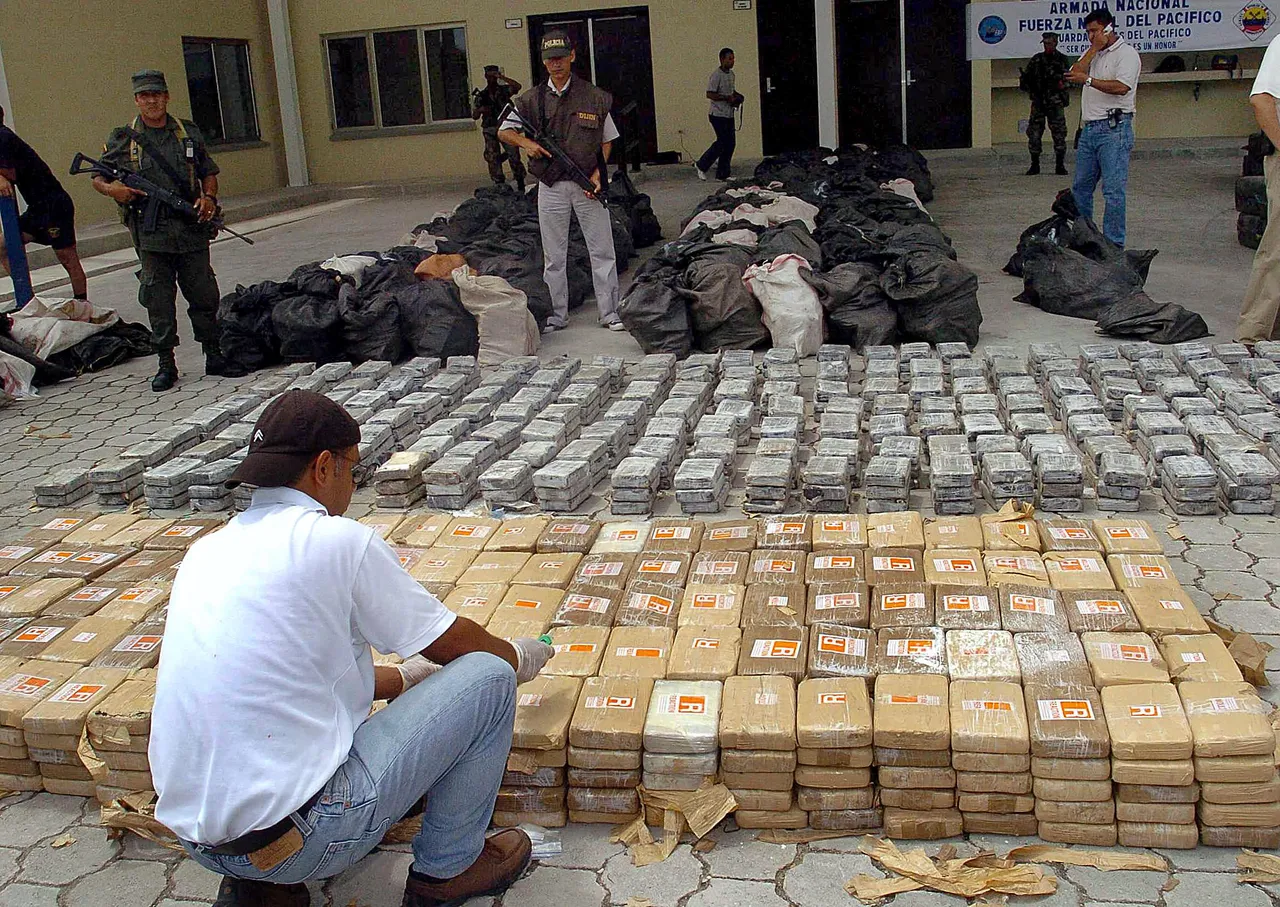
Police officers watch over 13.5 tons of cocaine 13 May 2005, confiscated during a joint police-navy raid on a processing laboratory outside the Pacific port of Tumaco, near the border with Ecuador, in what Colombian authorities say is the country’s biggest single narcotics haul. Five people were arrested, and officials confiscated eight vessels, nine rifles and 22,050 litres of chemicals used to extract cocaine from coca plant leaves. Right wing paramilitaries and leftist Revolutionary Armed Forces of Colombia (FARC) guerrillas are active in the region. Both groups use drug trafficking as a source of revenue. AFP PHOTO/ EL PAIS (Photo by STR/AFP via Getty Images)
Vlahos claimed that although Trump and his administration have often stated their intentions were to minimize drug deaths, the evidence shows that most is actually coming into the U.S. from the Pacific Ocean and not through the Caribbean.
“I feel like he hasn’t done his best to go to the American people and tell them why he’s doing this and show them some evidence as to why ‘we need to blow these boats out of the water,’” Vlahos said.
“We know that these guys are the worst of the worst, and they’re sending fentanyl into our streets and killing our children,” she added.
“Is it our role to dethrone him to impose another government that we like on Venezuela, is that a national security interest? Is that America first?” Vlahos told the Caller. “I do think that getting into a regime change war would unleash a lot of things that would probably blow back on [America].”
Venezuela functions as a “transfer point” for drugs but is not involved in production itself, Addington told the Caller.
Addington suggested two potential reasons for why Trump appears focused on Venezuela rather than Colombia, where the drugs are being produced.
There is a large domestic influence of operations or constituencies that may urge Trump to focus on Venezuela, Addington argued. The other possible reason is that Trump also had poor run-ins with Venezuelan dictator Nicolás Maduro during his first term.
“There are a lot of very obvious points where Maduro is opposed to American interests, beliefs, and ways of doing business that make him a thorn in America’s side in the region,” Addington told the Caller. “In contrast, Colombia has a lot of problems; they’re not necessarily the result of the Colombian government, at least not directly.”
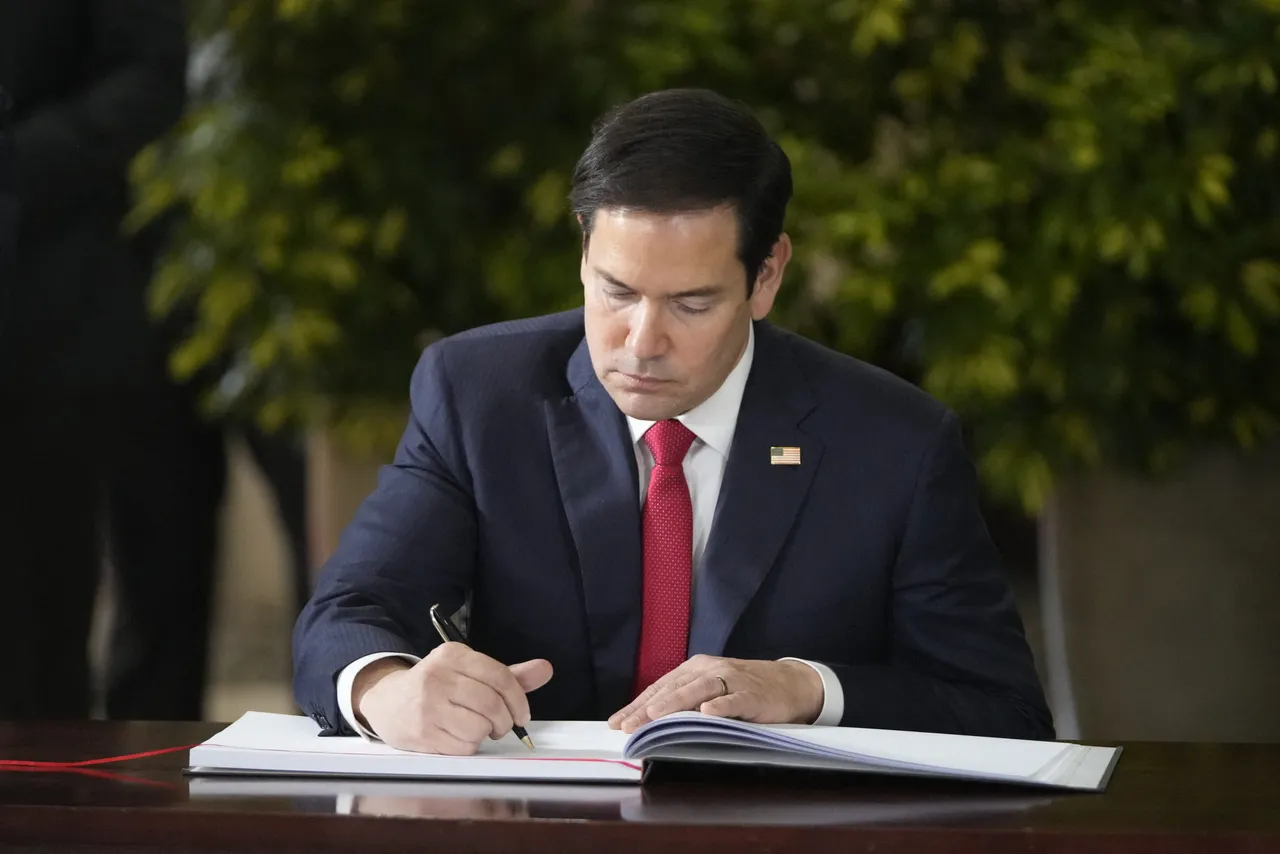
US Secretary of State Marco Rubio signs the guest book at the presidential palace in San Jose, Costa Rica on February 4, 2025. (Photo by MARK SCHIEFELBEIN/POOL/AFP via Getty Images)
A regime change could result in the largest American intervention in South America since the Spanish-American War, Addington told the Caller.
“This is not a trivial thing,” Addington said.
Although Maduro may have refused to step down despite losing the last election, his regime is still maintaining some order over the country, Addington claimed.
He argued that direct American involvement could result in a “brutal cartel, like we saw in Colombia in the latter half of the 20th century,” potentially creating a vacuum that would allow Colombian cartels to extend their production into Venezuela.
The Trump administration’s drug-boat strikes are “absolutely” unconstitutional without congressional authorization, constitutional lawyer and author Bruce Fein told the Caller. He pointed to George Washington, who presided over the Constitutional Convention, and said only Congress could authorize the military to be used in any offensive capacity.
Fein questioned whether the strikes were defensive maneuvers intended to save the lives of Americans who voluntarily purchase the drugs. It would be more within the president’s authority to target those buyers for aiding and abetting terrorist organizations, he told the Caller. (RELATED: Venezuela In The Trump Administration’s Crosshairs: Will War Follow?)
Fein agreed the U.S. could not possibly plan contingencies for all of the dangers a regime change could bring.
“There are institutional dynamics, cultural [and] political factors way beyond our control that are going to determine who rises in Venezuela,” he told the Caller.
Fein also pointed to botched attempts at U.S. intervention — including former President John F. Kennedy’s regime change in Vietnam, President Barack Obama’s in Libya and President George W. Bush’s in Afghanistan.
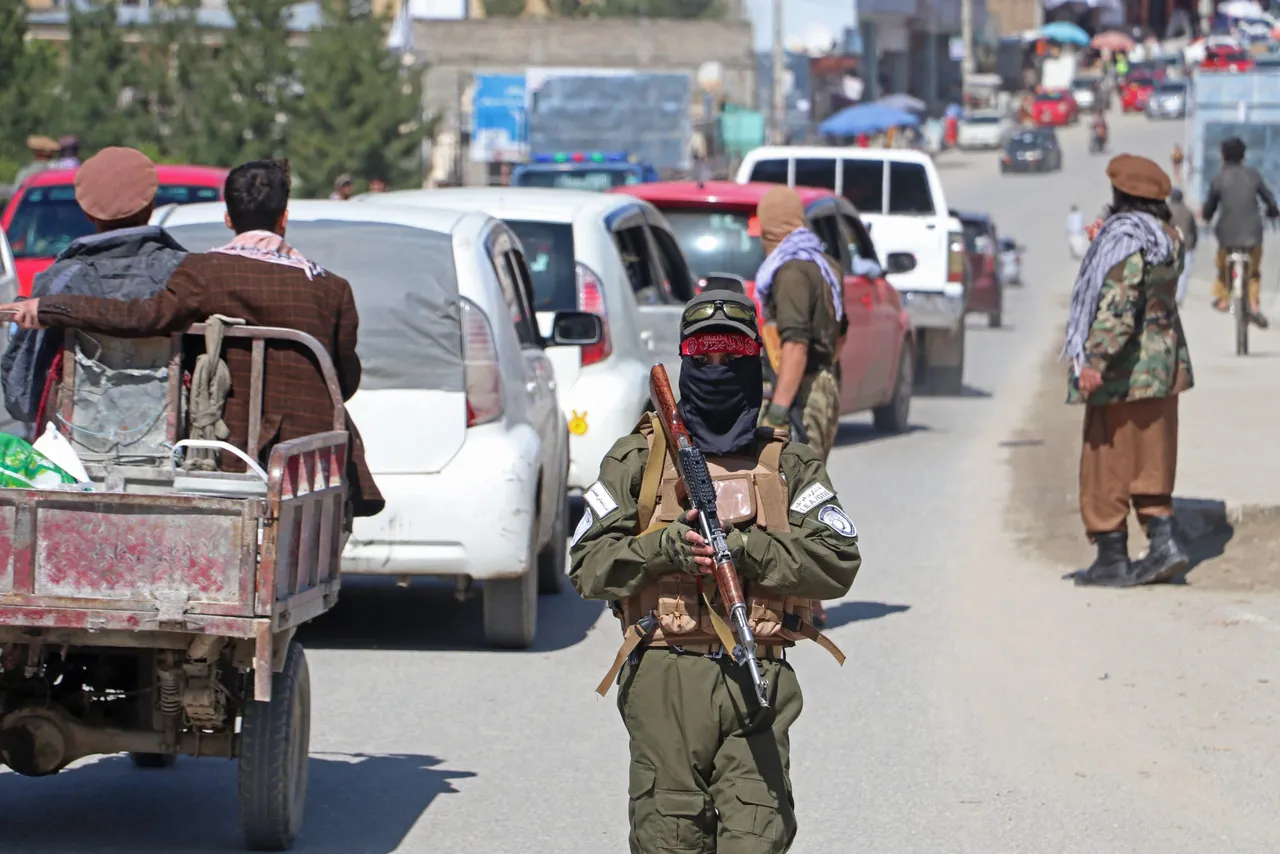
Taliban security personnel stand guard along a street to remove the window tint films from the cars of the commuters at a checkpoint in Fayzabad district of Badakhshan province on April 4, 2023. (Photo by OMER ABRAR/AFP via Getty Images)
“Countries learn nothing and they forget nothing,” Fein asserted.
The goal of Trump’s intervention in Venezuela has little to do with drugs or the dictatorship of Maduro and is primarily about trying to “establish a precedent that enables him to go to war when he feels like it,” Fein claimed.
He clarified that it’s not unique to Trump and that many chief executives try to stretch the limits of their power, such as those involved in previous regime change wars. (RELATED: Trump Builds Diplomatic Momentum Securing Peace, Trade Deals Ahead Of Looming Meeting With China)
Venezuela also holds a large repository of oil, and it is sent to the U.S. in small and controlled quantities, according to Reuters. Chevron was recently authorized to operate in Venezuela, despite sanctions.
Vlahos told the Caller she cannot pinpoint why Trump is portraying a particular interest in the region, but noted his bad blood with Maduro goes back to his first administration.
“We know that in the first Trump administration, Trump was very focused and committed to getting rid of Nicholas Maduro. He doesn’t like him,” Vlahos said. “He’s a socialist, he doesn’t play ball with us.”
She added that Trump’s instincts have historically been opposed to regime change wars.
“I’m just hoping that he sticks to his long-standing position that he doesn’t support regime change wars, because I think that instinct is what made him president,” Vlahos added. “Because he did reject the foreign policy of the previous administrations, which were pursuing regime change wars.”

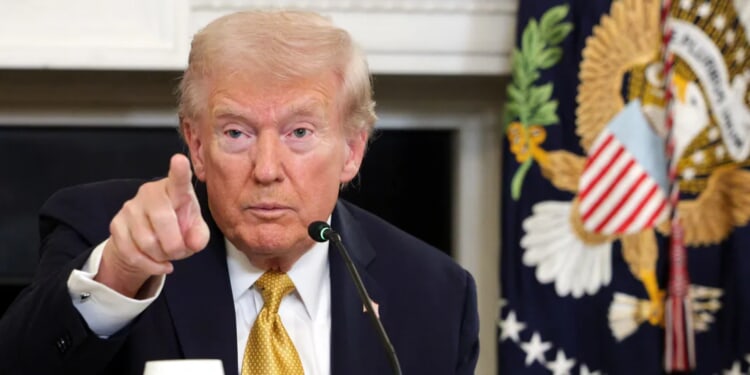







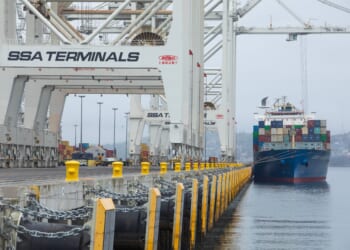

![Trump, Hegseth to Get Troops Paid Despite Dems Voting Against it Eight Times [WATCH]](https://www.right2024.com/wp-content/uploads/2025/10/Trump-Hegseth-to-Get-Troops-Paid-Despite-Dems-Voting-Against-350x250.jpg)
